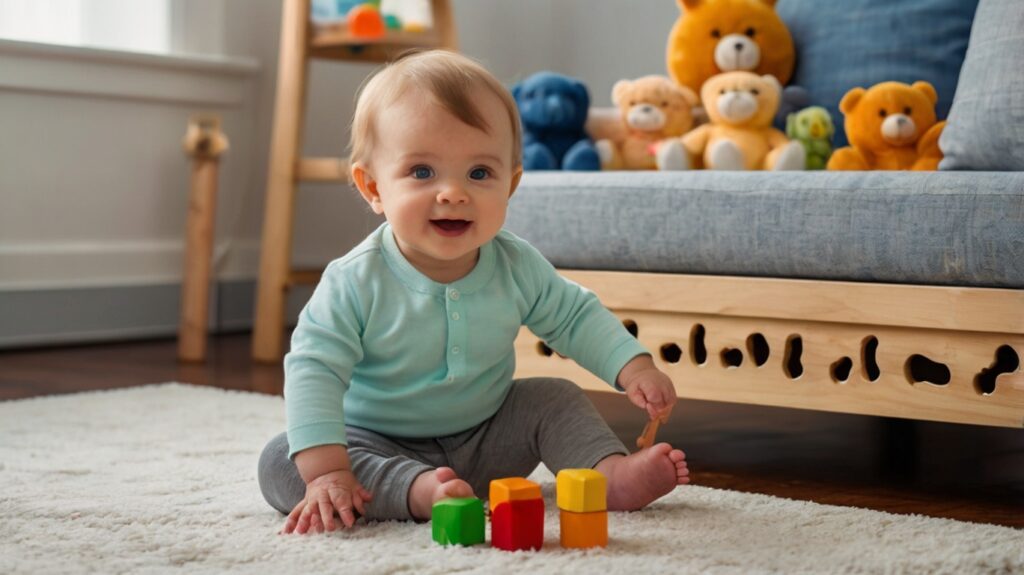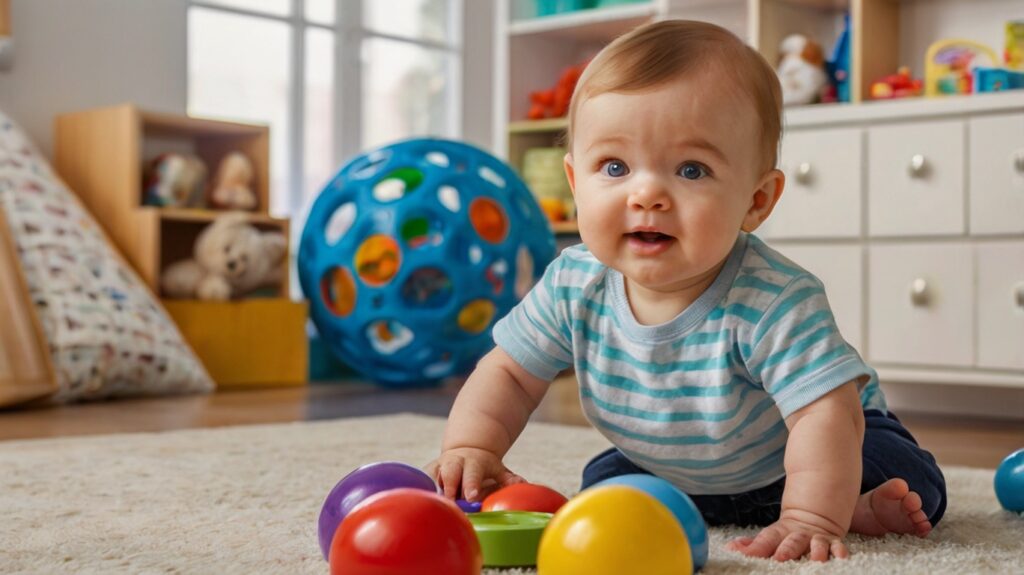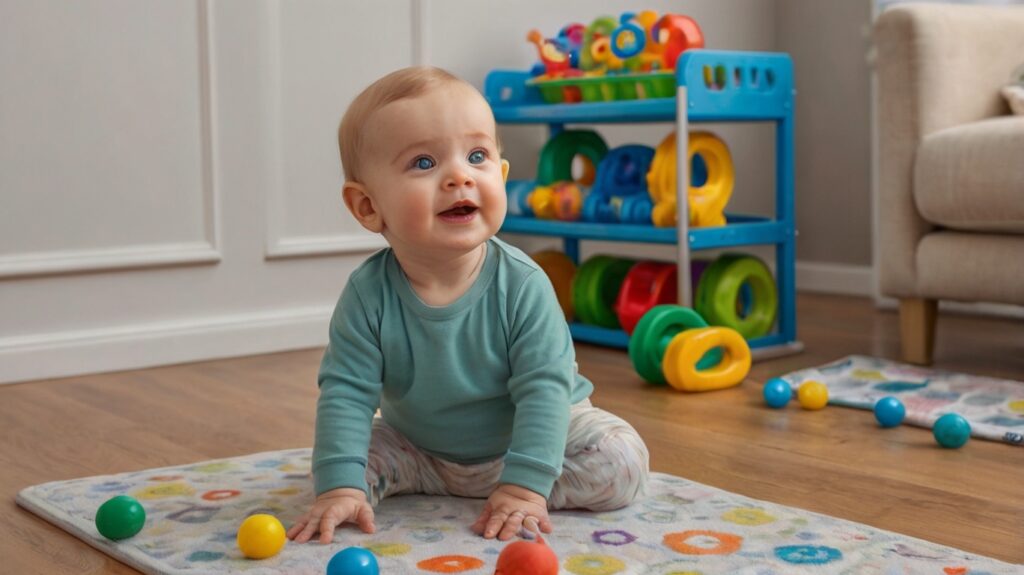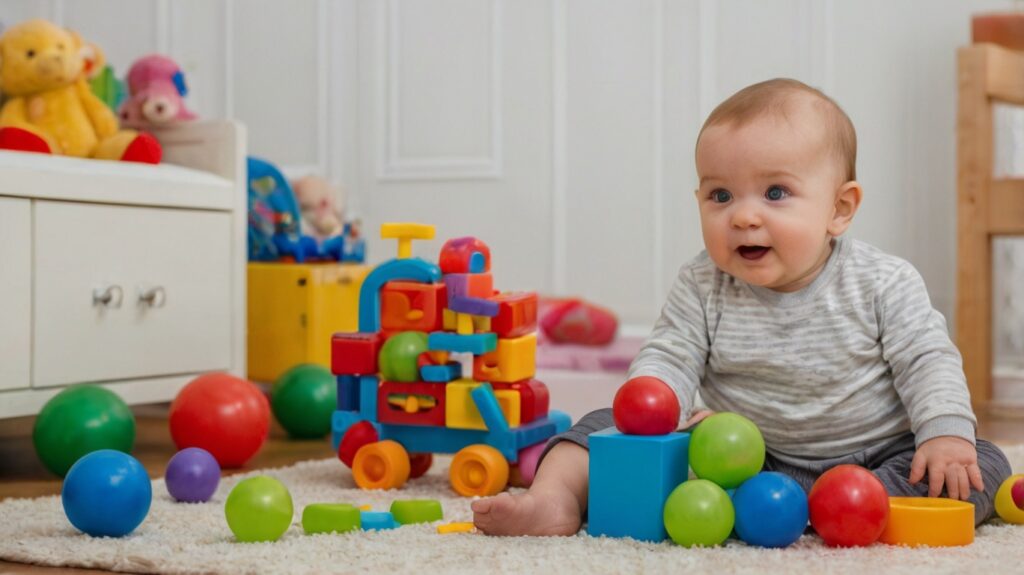
At 11 months old, your baby is on the cusp of toddlerhood. They’re likely moving more, babbling with intent, and showing an increasing desire to do things independently. This stage is full of energy, exploration, and adorable personality.
Physical Development
- Standing and cruising – Many 11-month-olds can pull up to stand and walk while holding onto furniture. A few may even take their first independent steps.
- Balance – Your baby is practicing coordination, which improves as they squat to pick up toys or transition from sitting to standing.
- Fine motor skills – The pincer grasp is well-developed. Babies at this stage may feed themselves finger foods, point to objects, or attempt to scribble with crayons.
- Coordination – Clapping, waving, and playing pat-a-cake become smoother and more intentional.

Cognitive Development
- Cause and effect – Your baby enjoys dropping toys repeatedly or banging objects to see (and hear!) what happens.
- Problem-solving – They may try to fit shapes into openings or figure out how to open a lid.
- Imitation – Copying actions like brushing hair, talking on a toy phone, or stirring with a spoon shows their learning through observation.
- Memory – They recognize routines, familiar faces, and even anticipate certain events (like getting excited when you bring out shoes before going outside).
Social and Emotional Development
- Separation anxiety – Still present in some babies but easing as they gain confidence.
- Attachment – Strong bonds with parents or caregivers are clear—your baby may seek comfort and reassurance from you often.
- Personality – Whether bold, cautious, silly, or serious, your baby’s individuality is becoming more obvious.

Feeding at 11 Months
- Breast milk or formula – Still an important part of the diet, but solid foods are taking a bigger role.
- Meals and snacks – 3 meals and 1–2 healthy snacks per day are typical.
- Finger foods – Encourage self-feeding with soft fruits, vegetables, small pasta, beans, cheese, or finely shredded meats.
- Cup use – Offer water in a sippy or straw cup to practice for the transition off bottles.
- Milk transition – Around 12 months, many families begin shifting from formula or breast milk to whole cow’s milk (discuss timing with your pediatrician).
Sleep Patterns
- Night sleep – Most babies sleep 10–12 hours overnight.
- Naps – Usually 2 naps per day, but some may begin transitioning to 1 longer midday nap.
- Routine – A predictable bedtime routine (bath, book, cuddle) helps ensure restful sleep.
Communication and Language
- Babbling – More complex sounds emerge, and your baby may mimic your speech rhythm.
- First words – Some babies say “mama,” “dada,” or another meaningful word.
- Gestures – Waving, pointing, and nodding are common ways babies communicate before they have many words.
- Understanding – Your baby can likely follow simple instructions like “give me the ball” or “come here.”

Safety Tips
- Keep baby-proofing updated, since mobility increases daily.
- Secure heavy furniture and TVs to walls to prevent tipping.
- Watch for small objects on the floor—choking hazards are a big risk at this age.
- Supervise near water, stairs, and anywhere your baby can climb.
When to Call the Pediatrician
Each child develops at their own pace, but talk to your doctor if your 11-month-old:
- Isn’t crawling, pulling to stand, or showing interest in moving.
- Doesn’t respond to familiar voices or sounds.
- Shows no interest in babbling, gestures, or interacting.
- Struggles with eating solid foods.
Your 11-month-old is learning at lightning speed, preparing to take their first steps into toddlerhood. This exciting stage is about exploration, independence, and bonding—cherish these moments as your baby’s first birthday approaches!